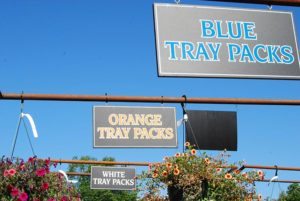Employee-Pricing Promotions
Some experts say General Motors Corporation’s (GM) summer campaign that offered employee discounts to car-buying consumers was a stroke of genius, but others argue it was an act of desperation.
GM posted a $1.1 billion loss in the first quarter of 2005. The employee-discount promotion helped increase the automaker’s U.S. sales for the month of June by 41 percent nationally, GM’s best sales month in 19 years. GM’s competitors, Ford and Chrysler, were forced to follow GM’s lead and offer their own employee-pricing promotions, a move that goosed summer car sales to record levels.
Did It Work?
It sounds like a successful campaign, but was it? No one doubts customers loved it. They flocked in record numbers to American car dealers in what is traditionally the slow season for car sales. Employee discounts are perceived to be the highest possible discount. GM’s overstock of 2005 vehicles was drastically reduced, and dealers’ lots were filled with newer trade-ins to sell. GM’s car sales actually increased the national retail sales figures by 1.7 percent for the month of June.
But in spite of the promotion’s apparent success, dealers grumbled and some analysts insist the car manufacturers didn’t attract new customers. The net effect was to shift sales the car dealerships expected in fall to earlier in the year. Yes, this cleared out bloated 2005 inventories but at the cost of future, higher-margin sales.
Still, the employee-discount promotion rocked the retail world, leading retailers nationwide to question, “Is there something to it?”
The Appeal
What was the huge appeal of an employee-discount offer? The discount was large, but similar discounts, when labeled back-to-school sales, clearance sales, etc., don’t create the same fervor.
In the wake of the auto dealers’ promotions, a host of other retailers have tried to duplicate the promotion. Everyone from CompUSA and Staples to local bicycle shops seems to have jumped on the employee-discount bandwagon. The question is, should garden centers?
Can It Work For You?
Lawn and garden retailers can and do take promotion ideas from large corporations and tailor those Á promotions to their needs. Some experts suggest a sale like GM’s employee-discount promotion could be even more effective for local or independent businesses. “Family” or “insider” promotions can be more believable when offered by a local business and can help cement local loyalty, too.
Following the car dealers’ lead, Moana Nursery in Reno, Nev., offered its 30-percent employee discount to customers for a week in late July and early August. The store advertised the sale in its regular weekly newspaper ad, with a notice on its bulletin board and in an E-mail newsletter sent to approximately 10,000 customers.
“It was one of the most effective sales we’ve ever had,” says Julie Muhilly, Moana Nursery’s manager of garden specialties. “It came during one of our slowest times of the year it’s very hot here then, and people are on vacation or are pretty much done with their gardens for the season. And we had 15 days of 100° F or hotter in July and August. But the sale really brought people in.”
Muhilly says unlike the car dealers Moana Nursery didn’t see a drop-off in sales after the event ended. “We carried the customer increase for a couple weeks after the sale ended,” she says. “It was a feel-good event for our customers; people really liked it.”
And although Moana’s margins on some lines like Smith & Hawken are tight enough to make an employee discount somewhat difficult, Muhilly feels the sale was profitable overall. “We would definitely do it again,” she says. “We have a pretty old customer base; we’ve been in this location for 38 years. We know many of our customers by name. I think this kind of sale reinforces that local connection.”
A Double-Edged Sword
One theory on why employee discounts work is that they make people feel special the discount is offered to insiders; therefore, the customers feel like they are not being offered leftover or inferior merchandise. Which, in turn, creates some inherent conundrums will a sale designed to reward insiders draw new customers? If the discount is offered only on overstocked merchandise or lines with high margins that can be comfortably cut, will it cheapen the offer or seem like a bait-and-switch scheme in the customers’ eyes?
If favorite customers perceive the sale as a hoax it could unravel the strong relationships already in place. And if a promotion aimed at making consumers feel like insiders doesn’t draw new customers, will it mean like GM simply replacing later high-margin sales with quick, low-margin ones?
Michael Cox, a Piper Jeffrey senior research analyst specializing in the lawn and garden industry suggests that, because garden center sales are so weather dependent, an employee-discount program would be most beneficial if the weather were Á poor or during a slow season much like Moana Nursery’s timing. “During the season, if you have a sunny Saturday, people will come in whether there is a special deal or not. Offering heightened discounts then will just take a slice off your margins,” explains Muhilly.
Apples And Oranges
While cherry picking successful events or offers used by other retailers is a solid strategy for success, the auto manufacturers’ deals had aspects that don’t apply to most lawn and garden retailers.
Some of those differences may benefit lawn and garden retailers: Unlike big-ticket items like cars, there are plenty of impulse items in garden centers. People aren’t likely to buy a few additional cars because the discount is good, but picking up a garden ornament or a few more flats is pretty easy and affordable to do. Therefore, this kind of promotion could conceivably generate enough incremental sales to help offset lower margins.
Additionally, car buyers are not likely to return to the dealership next month just to browse. “Increased traffic almost always helps us,” says Muhilly. “Looking around sparks ideas or just gets people excited about their gardens again. The effects last beyond the sale itself.”
Other benefits of the car manufacturers’ summer promotions don’t apply to most lawn and garden retailers: The appeal of no-haggle sales, for example, was one of the attractions for car buyers. Also, cars are large-ticket purchases, so the discounts are viewed as substantial. While a 30-percent discount is a good one, 30 percent off of a 20-dollar sale probably won’t inspire someone to drive to a neighboring town to shop. And finally, the auto manufacturers have stockholders who need to be satisfied in the short term, even if the long-term effects for the business are poor, something most lawn and garden retailers don’t need to contend with.
Do The Math
Another thing to be cautious of is long-term effects. GM, Ford and other large corporations may have deep enough pockets to recover from a single marketing blunder. A small company may not.
“You can be too successful,” says Peter Koeppel, president of Koeppel Direct, a direct response ad agency in Dallas, Texas. “You can build traffic tremendously and do a lot of volume, but if you’ve structured the offer badly or cut your profit margin too close you can actually lose money on each sale. And what looks like a huge success can actually damage your business faster than not doing anything at all. Those who advertise or promote aggressively tend to be the most successful retailers so I’m not suggesting the do-nothing track, or course. But you should really do the math first.”
Eugene Fram, J. Warren McClure research professor of marketing at Roches-ter Institute of Tech-nology, agrees: “Many different retailers are jumping into the employee-discount pool, but no one really knows where the currents will take them,” he says. “The minute you start ad-vertising a discount, you’re cutting into your profit margins, and you’re inspiring your competitors to do the same. You could find yourself in a price war that will be hard to get out of. Long-term or frequent discounts can set up an expectation among your customers that you’re a discount operation, and unless you can actually buy your goods at a deeper discount than your competitors, you can easily put yourself in a position you may not be able to afford to stay in.”
Plan Carefully
As always in building business, there are no easy, one-size-fits-all answers. Can an employee-discount promotion increase traffic, make your customers feel good and pump up revenues? Absolutely. Can an employee-discount promotion cut profit and hurt you in the long term? Possibly.
With careful planning, a solid knowledge of customers’ buying patterns and doing the math (and checking it twice), you may pull off your most successful discount promotion ever. Or, you may decide to back away from marketing that relies heavily on deep discounts.
“The most successful retailers are those who see a promotion especially those in other industries and think ‘Would that work for me?'” says Koeppel. “It’s not whether you actually copy every successful promotion you see; it’s that you think that way.”

















 Videos
Videos





